Tips & Tools
Managing your anxiety
Nourishing Your Body To Manage Anxiety
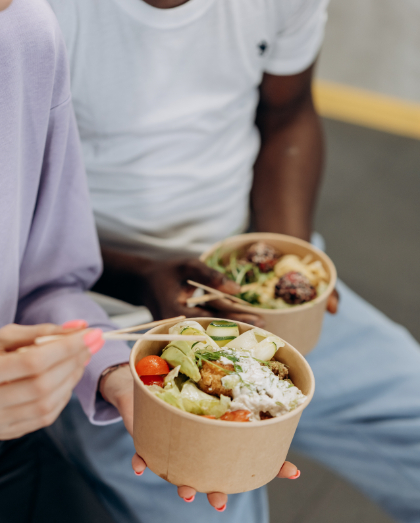
Have you heard about the gut-brain connection? If you haven't, check out our article here to learn more about the influence gut health has on our mental health. This gut-brain connection is why these blog insights by Registered Holistic Nutritionist Stephanie Di Grazia on supplements and desirable foods and drinks to manage anxiety are so positively impactful on mental health! Put into practice nourishing your body optimally, and you will notice anxiety becomes more manageable.
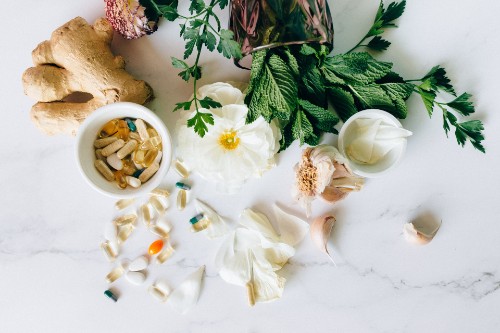 |
What are your favourite supplements for anxiety? Why?
Research suggests that some dietary supplements, including certain vitamins and minerals, may help to reduce anxiety symptoms. Some of these include:
Vitamin B
B vitamins affect our brain and nerves and may help relieve stress and boost cognitive performance. Vitamin B12 is especially effective for managing your mood, and low levels are linked to increased rates of anxiety and depression. In addition, Vitamin B5 (Pantothenic Acid) supports our adrenal glands' proper function, which produces stress hormones like cortisol. In doing so, it helps to regulate stress which is often linked to anxiety.
Magnesium
Magnesium is known as the “Anti Stress Mineral,” and supplementation has been demonstrated to be effective in managing anxiety, ADHD, chronic fatigue, muscle spasms and migraines. Magnesium improves sleep and relaxation while helping to reduce stress. It can also help relieve anxiety symptoms and the onset of panic attacks.
GABA
Most substances used to relieve anxiety – alcohol, cannabis, tranquillizers – get their effect through boosting GABA in your brain. GABA is a neurotransmitter that controls impulses between nerve cells in the brain and is available in supplement form. It promotes mental clarity and physical relaxation and improves cognitive functions like learning, concentration, and memory. It also helps control stress-related eating and food cravings and, improves sleep quality / alleviates insomnia.
Bach Flower Remedy
Derived from 38 flowers, these remedies help to restore balance and tranquillity in the mind and combat negative emotions such as fear and worry. Safe to use to support emotional wellness and can calm down the nervous system. It has gentle sedative qualities, alleviates anxiety, and helps improve digestive upset from anxiety.
What would be the best diet plan for someone who struggles with anxiety?
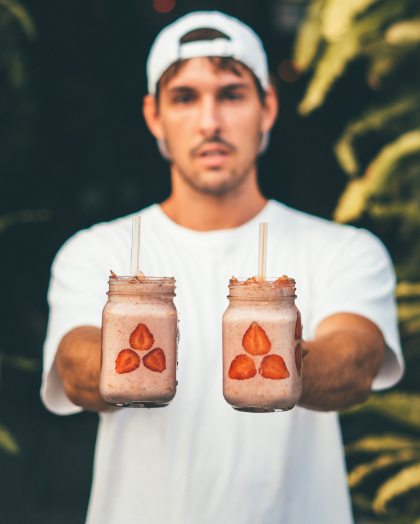
A diet filled with fresh whole foods and minimally processed foods is optimal for overall mental health, anxiety and well-being! Eating foods that are rich in nutrients that support mental health is also optimal. Some of these include:
-
Foods rich in tryptophan (reduces stress, improves sleep and precursor to serotonin, our feel-good brain chemical) like turkey, beef, eggs, chicken, nuts, dark leafy greens and citrus fruits.
-
Foods rich in Vitamin C like blueberries, strawberries, and citrus fruits.
-
Foods rich in magnesium like spinach, dark chocolate, chia seeds, nuts, and whole grains.
-
Foods rich in potassium, like avocados and bananas, help lower blood pressure when anxious.
-
Foods rich in B vitamins like meat, eggs, seafood, leafy greens, legumes and whole grains.
Probiotic-rich foods are also important. Studies show that gut disorders (intestines and bowels) are often related to poor mood, anxiety and depression. Probiotics help improve gut health, reduce gut inflammation, and improve nutrient absorption. Good sources: fermented vegetables, kimchi, kefir, miso, yogurt, tempeh.
What foods should we avoid eating if we have anxiety?
Coffee and foods containing caffeine
→ suppress serotonin production, making you feel more jittery/anxious
Refined sugar and grains
→ sugars cause blood sugar spikes and crashes, interfering with mood and anxiety levels
Alcohol
→ depressant and diuretic, which can seriously interfere with moods and anxiety
→ depresses the central nervous system, which is responsible for thinking, understanding and emotion
Processed foods and meats
→ adverse effect on your gut flora
→ tend to be inflammatory and filled with sodium
Food Additives (i.e. food colouring, high fructose corn syrup, MSG)
→ inability to process them can cause unwanted side effects that include anxiety
→ Food additives have also been linked to allergies, digestive issues, and hyperactivity
Highly Inflammatory foods (refined carbohydrates, fried foods, soda, margarine)
→ inflammation triggers a stress response in the brain
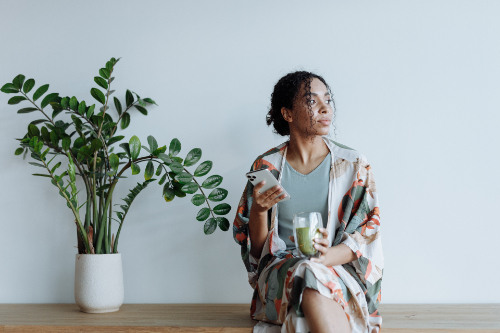 Many drinks worsen anxiety (alcohol, caffeine). Are there any beverages that help with anxiety?
Many drinks worsen anxiety (alcohol, caffeine). Are there any beverages that help with anxiety?
Teas like green tea can help with anxiety. Green tea contains L-Theanine, an amino acid that has a relaxation or calming effect. This also stimulates the production of alpha waves in the brain associated with relaxation while maintaining mental alertness. L-Theanine also gets converted in the brain into GABA, which helps produce our feel-good brain chemicals dopamine and serotonin. The calming effect usually occurs within 30 - 40 minutes of taking it. Chamomile also has a calming effect, as well as tea blends that contain valerian root, lemon balm and passionflower. Also, always keep hydrated and drink lots of water!
In summary, a whole food diet rich in good bacteria, nutrients, and fibre, supplements that support a good and calm mood, and being mindful of what foods or drinks trigger our anxiety will significantly help us navigate our journey with anxiety. Thanks to Stephanie Di Grazia for providing us with these insightful answers to our burning questions; you can check out more about Stephanie on our Expert page here. Don't hesitate to contact us via [email protected] if you have any further questions or comments, or reach out to Stephanie directly at her contact information below.
*** Please remember to ALWAYS speak with your health care practitioner before introducing any new supplements or making any drastic dietary changes.

Stephanie Di Grazia, RHN
Email: [email protected]
Instagram: @fitfixbysteph
Facebook: Stephanie Di Grazia RHN
- All
-
29 Nutrition
Nutrition
- 73 Mindfulness and Relaxation
- 27 Student Life
- 8 Exercise
- 51 Treatments & Therapies
- Anxiety Resources

Don't see what you're looking for? Send us an email!
©Copyright 2024 Cam’s Kids powered by Kids Help Phone
Not-for-Profit Organization. B/N: 921508-5
Thanks for visiting Cam's Kids. Please remember...
Cam's Kids is not a service provider.
If you are in crisis, please call 911 or go to your nearest emergency department. For free, confidential counselling, contact Good2Talk or Kids Help Phone.
Post-secondary students: find your local crisis resource here.
